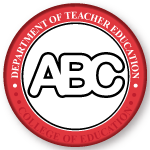Author ORCID Identifier
Jakopovic - https://orcid.org/0000-0002-9554-9201
Document Type
Dissertation
Publication Date
6-2017
Abstract
Reforms in mathematics education call for teaching to move away from “traditional” approaches (Carpenter, Ansell, & Levi, 2001) that are focused around rote procedures and skills, and toward practice that engages students in cognitively demanding tasks, discourse, and productive struggle to develop conceptual and procedural understanding (NCTM, 2014). This type of teaching is complex, often requiring teachers to develop new content and pedagogical knowledge (Hill, et al., 2008). One professional development effort that attempts to address this need is the implementation of mathematics coaches in schools. Coaching efforts have met with mixed success to date (Campbell & Malkus, 2011; Coburn & Russell, 2008), therefore it is important to examine which aspects of their role can be most effective in advancing teacher practice. In this qualitative study, I examined the coaching moves of six elementary coaches during lesson planning and debriefing. All participants were full time coaches in a large, urban school district in the Midwest. The focal question of this study is: How do mathematics coaches craft the conversations they have with teachers during planned three part coaching cycles in the way that they do in order to promote teacher reflection and shifts in instructional practice? The data analyzed included transcripts from planning and debriefing sessions, field notes, pre- and post- observation interviews with coaches, and formal interviews at the end of the study with the coaches and a sample of teachers. The analysis in this study suggests that coaching moves were more productive when they: 1) helped teachers attend to a range of mathematical tasks of teaching, 2) made connections between and among major teaching themes, 3) were worded specifically, and 4) included follow up moves. Understanding the ways coaches enact coaching moves productively is critical to providing training and support for mathematics coaches that lead to effective coaching programs (Ross, 1992). I also found that identifying the types of contextual factors present during coaching sessions, as well as the potential influence such factors may have had on the productivity of the coaching moves, was an important feature to better understand why some coaching was more productive than others.
Recommended Citation
Jakopovic, Paula M., "Understanding what makes for productive coaching moves to help teachers attend to mathematical tasks of teaching" (2017). Teacher Education Faculty Publications. 147.
https://digitalcommons.unomaha.edu/tedfacpub/147


Comments
The Author holds the copyright and must be contacted directly for any reuse or permissions.
Presented to the Faculty of The Graduate College at the University of Nebraska In Partial Fulfillment of Requirements For the Degree of Doctor of Philosophy